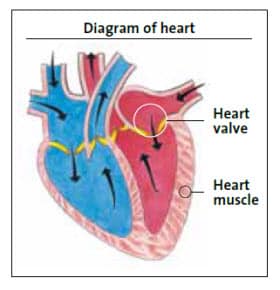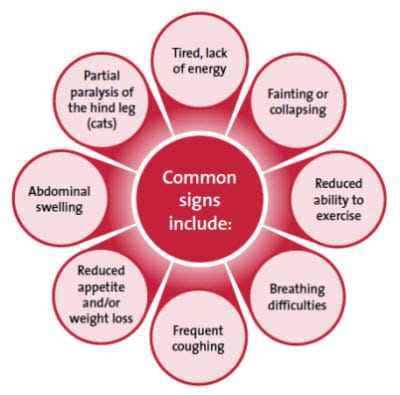
-
Find the right food for your pet
Take this quiz to see which food may be the best for your furry friend.
Find the right food for your pet
Take this quiz to see which food may be the best for your furry friend.
Featured products
 Adult Healthy Cuisine Roasted Chicken, Carrots & Spinach Stew Dog Food
Adult Healthy Cuisine Roasted Chicken, Carrots & Spinach Stew Dog FoodDelicious roasted chicken paired with tender vegetables in a succulent stew
Shop Now Small & Mini Savory Stew with Chicken & Vegetables Dog Food
Small & Mini Savory Stew with Chicken & Vegetables Dog FoodA delicious complement to the nutrition of Science Diet Small & Mini 7+ dog food
Shop Now Adult 7+ Perfect Digestion Chicken, Whole Oats & Brown Rice Recipe Dog Food
Adult 7+ Perfect Digestion Chicken, Whole Oats & Brown Rice Recipe Dog FoodScience Diet's breakthrough nutrition supports ultimate digestive well-being & healthy microbiome for dogs age 7+
Shop NowFeatured products
 Adult 7+ Senior Vitality Chicken & Vegetable Stew Cat Food
Adult 7+ Senior Vitality Chicken & Vegetable Stew Cat FoodImproves Everyday Ability to Get Up & Go
Shop Now Adult Savory Entrée Can Variety Pack Cat Food
Adult Savory Entrée Can Variety Pack Cat FoodPrecisely balanced nutrition with the delicious taste of savory minced chicken to help fuel the energy needs of cats during the prime of their life
Shop Now Adult 7+ Tender Tuna Dinner Cat Food
Adult 7+ Tender Tuna Dinner Cat FoodWith delicious chunks in a decadent gravy
Shop Now -
Dog
- Dog Tips & Articles
-
Health Category
- Weight
- Food & Environmental Sensitivities
- Urinary
- Digestive
- Joint
- Kidney
-
Life Stage
- Puppy Nutrition
- Adult Nutrition
- Senior Nutrition
Cat
- Cat Tips & Articles
-
Health Category
- Weight
- Skin & Food Sensitivities
- Urinary
- Digestive
- Kidney
-
Life Stage
- Kitten Nutrition
- Adult Nutrition
Featured articles
 Why Are Dogs and Cats So Cute?
Why Are Dogs and Cats So Cute?If waggy puppy dog tails and furry kitten yawns make you swoon, you're not alone. Why are cats so cute? And, dogs too! Let's find out!
Read More Do Dogs and Cats have Belly Buttons?
Do Dogs and Cats have Belly Buttons?Learn whether cats & dogs have belly buttons like humans, what the function is, and if there are any health concerns associated with it.
Read More Does My Pet Hate Me?
Does My Pet Hate Me?Learn tips for bonding with your pet if you've ever thought, 'My dog doesn't like me, or 'Why do I have a standoffish cat?'
Read More -


Related Image Content
No matter your dog's size, he has a big heart - metaphorically speaking, of course. He has a personality all his own, he is a loyal companion and seems to know when you need a good laugh. But this same heart can be at risk for heart disease, an abnormal enlargement of his heart.
What is heart disease and heart conditions in dogs?
Heart disease is an unfortunate but tolerable condition for your dog. The heart is the most important organ in your dog’s body. It pumps blood containing oxygen and nutrients through the blood vessels to the cells of the body. Most heart conditions involve a decrease in the effective pumping of blood. This can lead to a buildup of fluid in the chest and abdomen. There are two main types of heart conditions: one affecting the heart valve and the other the heart muscle. Dogs with either type can be successfully managed through nutrition, exercise and, if necessary, medication. With the right dog food and advice from your veterinarian, your dog can continue to enjoy a happy, active life.

The two main heart conditions
Chronic Valvular Disease: A leaking heart valve reduces the quantity of blood that can be pumped around the body.
Myocardial Disease: In this condition, weakness or thickening of the heart muscle results in the heart pumping less efficiently.
What causes heart disease?
Although there is no single cause, nutritional problems can play a major role in heart conditions. Aging is the most common reason dogs develop heart conditions, but other factors like heartworm can also lead to heart disease. Other factors that can contribute include:
Body condition: Overweight dogs are more likely to develop heart disease.
Age: Heart conditions in dogs occur more frequently with increasing age.
Breed: In dogs, chronic valvular disease is more common in small breeds such as miniature poodles, cocker spaniels, Pomeranians and schnauzers. Myocardial disease is more common in large and giant breeds like Great Danes and Irish wolfhounds.


Tasty Tips
Does my dog have a heart condition?
It can be difficult to tell if your dog has a heart condition because the signs can be similar to those of other dog diseases. Your veterinarian may check for heart disease using some of the following methods.
- A stethoscope exam can reveal murmurs and fluid in the lungs
- Palpation can reveal unusual pulses
- X-rays reveal heart enlargement
- An EKG can identify heart enlargement and irregular rhythms
- Blood and urine tests can reveal heartworms and the condition of other internal organs
The following symptoms may indicate a heart problem in your dog.
- Tired, lack of energy
- Fainting or collapsing
- Frequent coughing. In some cases, a low-pitched cough that sometimes leads to gagging
- Breathing difficulties that include shortness of breath
- Reduced ability to exercise
- Reduced appetite and/or noticeable weight gain or loss
- Swelling in the abdomen

IMPORTANT: A heart condition may not be obvious in the early stages. If you are in any doubt about your dog’s health, consult your veterinarian.
Treatment: The importance of nutrition
Although treatments cannot reverse heart disease, your dog can live a relatively normal life. The food your dog eats plays an important role in his overall health and well-being. When your dog has been diagnosed with a heart condition, it’s even more important to feed the right dog food.
Heart disease typically causes the heart to enlarge, and this enlargement causes a loss of efficiency. The heart then begins to hold more fluid than it should and this is where the real problems begin. For this reason, veterinarians recommend feeding dogs a low-sodium food that will help reduce fluid build-up and make it easier for their hearts to work effectively.
For accurate diagnosis and treatment options, always consult your veterinarian and ask them to recommend the best food for your dog’s heart health.
Ask Your Veterinarian About Heart Disease:
- Are there any foods I should avoid giving my dog because of his condition?
- Ask how human food can affect your dog’s health.
- Would you recommend a Hill’s® Prescription Diet® dog food for my dog’s heart health?
- Ask about special nutritional concerns for your dog
- How much / how often you should feed the recommended food to your dog
- Discuss which treats you can feed your dog with the recommended food
- How quickly should I expect to see signs of improvement in my dog’s condition?
- Can you provide me with written instructions or a booklet on heart disease for my dog?
- What is the best way (email/phone) to reach you or your hospital if I have questions?
- Ask if you need a follow-up appointment.
- Ask if a reminder email or notice will be sent.


One of our staff authors prepared this article for you


One of our staff authors prepared this article for you
Related products

Delicious roasted chicken paired with tender vegetables in a succulent stew

Science Diet's breakthrough nutrition supports ultimate digestive well-being & healthy microbiome for dogs age 7+

A delicious complement to the nutrition of Science Diet Small & Mini 7+ dog food

Delicious braised beef paired with tender vegetables in a succulent stew
Related articles

Your dog's coat and skin are a big part of your dog's overall health. Ensure you keep your dog's coat healthy, by following these simple tips.

Hill's Science Diet Small & Toy Breed dog foods are designed to meet the nutritional needs for your small dog at every life stage. Learn more here.

Large and giant breed puppies have different nutritional needs than other dogs. Learn how to provide the special care they need to grow up big and strong.

Learn about choosing the right food for your mature or older dog, ensuring he receives the correct balance of nutrition.

Put your dog on a diet without them knowing
Our low calorie formula helps you control your dog's weight. It's packed with high-quality protein for building lean muscles, and made with purposeful ingredients for a flavorful, nutritious meal. Clinically proven antioxidants, Vitamin C+E, help promote a healthy immune system.
Put your dog on a diet without them knowing
Our low calorie formula helps you control your dog's weight. It's packed with high-quality protein for building lean muscles, and made with purposeful ingredients for a flavorful, nutritious meal. Clinically proven antioxidants, Vitamin C+E, help promote a healthy immune system.

